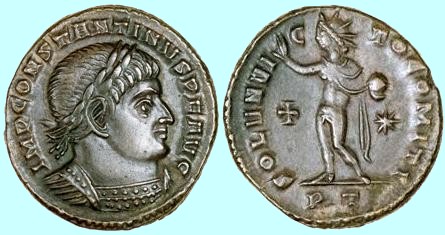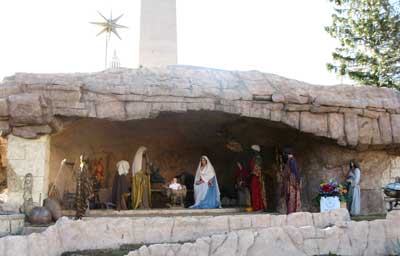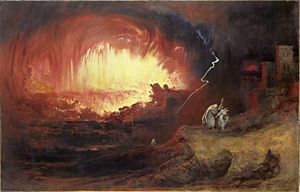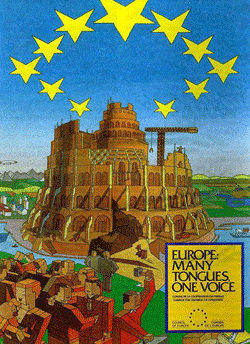

Mithras, the sun god
COGwriter
Multiple millions are observing a birthday today. And while many believe that they are celebrating the birth of Jesus, the reality is that those who have looked into the biblical account realize that December 25th was not the date that Jesus was born. Scholars also realize that early Christians not only did not celebrate December 25th as Jesus’ birthday, early Christians and professors of Christ basically did not celebrate birthdays at all.
The Catholic Encyclopedia teaches that:
Christmas was not among the earliest festivals of the Church (Martindale C. Transcribed by Susanti A. Suastika. Christmas. The Catholic Encyclopedia, Volume III. Copyright © 1908 by Robert Appleton Company. Online Edition Copyright © 2003 by K. Knight. Nihil Obstat, November 1, 1908. Remy Lafort, S.T.D., Censor. Imprimatur. +John Cardinal Farley, Archbishop of New York).
An Armenian scholar called Ananias of Shirak, circa 600 A.D., wrote:
The Festival of the holy Birth of Christ, on the 12th day before the feast of the Baptism, was not appointed by the holy apostles, nor by their successors either, as is clear from the canons of the holy apostles…But in the days of the holy Constantine, in the holy Council of Nice, this festival was not received by the holy fathers (Ananias of Shirak, On Christmas, The Expositor, 5th series vol. 4 (1896) Translation. pp.323-337, as reported by ccel).
Now, probably one to two centuries after Jesus was born, some heretics/apostates did have a celebration, but the widest recognized dates tended to be in the months of May or January.
So, why December 25 now?
The historical record suggests that December 25th was chosen for basically two reasons: Saturnalia and Emperor Constantine’s ties to Mithraism.
The historical record show that some who professed Christ wanted to keep the idolatrous festival of Saturnalia. This festival which included the December 25th date. About three centuries after Jesus died, certain apostate authorities used the date as a way to pretend that the pagans were observing a supposedly “Christian” holiday. But, since the Saturnalia was longer than one day, that only partially explains December 25th. And it does not explain why observers who profess Christ ignore various warnings in the Bible–which should be shown now.
Even Catholic and Protestant translations of the Bible clearly warn against mixing pagan idolatrous practices with the worship of the God of the Bible. This is proved by the following in both the New and Old Testaments:
15. And what agreement with Christ and Belial? or what part hath the faithful with the
infidel?
16. And what agreement hath the temple of God with Idols? For you are the temple of the
living God. as God saith, Then I will dwell, and walk in them, and will be their God: and
they shall be my people.
17. For the which cause, Go out of the midst of them, and separate yourselves. saith our
Lord, and touch not the unclean: and I will receive you (2 Corinthians 6:15-17, The Original And True Rheims New Testament Of Anno Domini 1582. Prepared and Edited by Dr. William von Peters, Ph.D. Copyright © 1998, Dr. William G. von Peters. Ph.D. 2004, copyright assigned to VSC Corp.).
15 And what accord has Christ with Belial? Or what part has a believer with an unbeliever? 16 And what agreement has the temple of God with idols? For you are the temple of the living God. As God has said:
“I will dwell in them
And walk among them.
I will be their God,
And they shall be My people.”
17 Therefore
“Come out from among them
And be separate, says the Lord.
Do not touch what is unclean,
And I will receive you.” (2 Corinthians 6:15-17, NKJV)
2 ‘Do not learn the ways of the nations or take alarm at the heavenly signs, alarmed though the nations may be at them. 3 Yes, the customs of the peoples are quite futile: wood, nothing more, cut out of a forest, worked with a blade by a carver’s hand, 4 then embellished with silver and gold, then fastened with hammer and nails to keep it from moving. 5 Like scarecrows in a melon patch, they cannot talk, they have to be carried, since they cannot walk. Have no fear of them: they can do no harm — nor any good either!’… 11 ‘Tell them this, “The gods who did not make the heavens and the earth will vanish from the earth and from under these heavens.” ‘ (Jeremiah 10:2-5,11, New Jerusalem Bible)
2 Thus saith the Lord, Learn not the way of the heathen, and be not dismayed at the signs of heaven; for the heathen are dismayed at them. 3 For the customs of the people are vain: for one cutteth a tree out of the forest, the work of the hands of the workman, with the axe. 4 They deck it with silver and with gold; they fasten it with nails and with hammers, that it move not. 5 They are upright as the palm tree, but speak not: they must needs be borne, because they cannot go. Be not afraid of them; for they cannot do evil, neither also is it in them to do good…11 Thus shall ye say unto them, The gods that have not made the heavens and the earth, even they shall perish from the earth, and from under these heavens. (Jeremiah 10:2-5,11 KJV)
So unclean practices associated with idols are prohibited by God. Does not that include celebrating as the idolaters celebrate? Also, the above says not to be affected for worship from various signs in the heavens–this would seem to include the oft claim that there was possibly some type of a heavenly sign (like the “Star of Bethlehem”) in December of some year (I have seen such claims, and although there were certainly heavenly signs associated with Jesus’ actual birth, the “proofs” that I have tended to see by some who have claimed a December 25th date tend to miss the ACTUAL YEAR that Jesus was born).
Why, despite biblical warnings and the fact that Jesus was not born on December 25th and his original followers did not celebrate His birthday did December 25th get adopted?
Basically because of a combination of paganism and political compromise.
A specific birthday was celebrated on December 25th. This was the claimed birthday of the sun god Mithras (sometimes spelled Mithra; see also Do You Practice Mithraism?).
The Catholic Encyclopedia teaches:
Mithraism A pagan religion consisting mainly of the cult of the ancient Indo-Iranian Sun-god Mithra. It entered Europe from Asia Minor after Alexander’s conquest, spread rapidly over the whole Roman Empire at the beginning of our era, reached its zenith during the third century, and vanished under the repressive regulations of Theodosius at the end of the fourth century…Helios Mithras is one god…Sunday was kept holy in honour of Mithra, and the sixteenth of each month was sacred to him as mediator. The 25 December was observed as his birthday, the natalis invicti, the rebirth of the winter-sun, unconquered by the rigours of the season (Arendzen. J.P. Transcribed by John Looby. Mithraism. The Catholic Encyclopedia, Volume X. Published 1911. New York: Robert Appleton Company. Nihil Obstat, October 1, 1911. Remy Lafort, S.T.D., Censor. Imprimatur. +John Cardinal Farley, Archbishop of New York).
Natalis Invicti. The well-known solar feast, however, of Natalis Invicti, celebrated on 25 December, has a strong claim on the responsibility for our December date. For the history of the solar cult, its position in the Roman Empire, and syncretism with Mithraism, see Cumont’s epoch-making “Textes et Monuments” etc., I, ii, 4, 6, p. 355…The earliest rapprochement of the births of Christ and the sun is in Cypr., “De pasch. Comp.”, xix, “O quam præclare providentia ut illo die quo natus est Sol . . . nasceretur Christus.” – “O, how wonderfully acted Providence that on that day on which that Sun was born . . . Christ should be born.”… (Martindale C. Christmas, 1908).
The World Book Encyclopedia notes,
In 354 A.D., Bishop Liberius of Rome ordered the people to celebrate on December 25. He probably chose this date because the people of Rome already observed it as the Feast of Saturn, celebrating the birthday of the sun (Sechrist E.H. Christmas. World Book Encyclopedia, Volume 3. Field Enterprises Educational Corporation, Chicago, 1966, pp. 408-417).
It needs to be understood that some scholarly sources believe that the celebration in Rome of Christmas may have began 2-3 decades earlier (by Constantine), but none I am aware of suggest it was prior Constantine in the fourth century.
Although he is called “the Great” by the Catholics of Rome and a “saint” by the Eastern Orthodox, Emperor Constantine was a follower of the sun god Mithras. And while some claim that he “converted” to “Christianity” after seeing a cross in the sky, having a vision of Jesus, and winning the battle of the Milvian Bridge in 312 A.D. (Milvian Bridge Day, Constantine, and St. Jude ), notice a coin he had produced in 317 A.D.:

So, the image of Emperor Constantine is on one side of the coin and the image of the sun god Mithras is on the other side of the coin. Emperor Constantine greatly influenced the religion of the Roman and Eastern Orthodox Catholics and to this day, many aspects of Mithraism are incorporated into their respective faiths, as well as those of most Protestants.
Why Mithras?
Basically, the sun-worshiping Roman Emperor Constantine was a follower of Mithras. But that religion has problems:
Mithraism was destined by its very nature to be, not a world- religion like Christianity, but the exclusive cult of a restricted number of worshippers. A religion that rigidly excluded all women from participation in its worship, that restricted the initiates to such men alone as had the courage and the power of physical endurance to undergo its severe tests, that celebrated its ritual in underground temples absolutely hidden from public gaze, such a religion was never meant, and was never fit, to become the religion of a nation. (Aiken C.F., Mithraism and Christianity, p. 387)
Women, being 1/2 the population and necessary for the continuance of humanity, could not be excluded from a faith for an empire to do well, so something had to be done.
Yet, Mithraism itself also had a certain appeal to the Emperor as the Catholic scholar C. Aiken noted:
Mithraism was first and foremost a military cult, brought to these regions by foreign Mithra-worshippers, who along with other orientals were enlisted in the Roman army and stationed in the numerous camps that dotted the extensive frontier on the North. Some of the Roman soldiers, even centurions and higher officers, became initiated in the mysteries of the victorious light-god, and when afterwards they were sent to different parts of the empire (Aiken C.F., Mithraism, p. 255)
Now originally, virtually none who professed Christ would participate in military service. But by blending aspects of Mithraism with the profession of Christianity, Emperor Constantine was able to produce a faith that he felt would provide his empire the type of military might that he wanted (Military Service and the Churches of God: Do Real Christians Participate in Carnal Warfare?).
Because of that, many associated with Mithraism professed his “Constantinian Christianity,” and since they had such strong ties to Mithras, it was determined that to declare that Jesus was to be worshiped then would keep them as part of that compromised faith (Do You Practice Mithraism?).
Are Pagan Practices Knowingly Still Going on Today?
Certainly, December 25th contains a lot of pagan practices. Here are some mentioned in The Catholic Encyclopedia and the Vatican:
Cards and presents. Pagan customs centering round the January calends gravitated to Christmas…
The yule log. The calend fires were a scandal even to Rome, and St. Boniface obtained from Pope Zachary their abolition (Martindale C. Christmas, 1908).
Vatican paper disfavours Santa Claus
Rome, Dec. 22: Sant Claus, and Christmas trees, have been condemned in an editorial in the Vatican weekly newspaper, “L’Osservatore della Domenica.” The editorial describes Santa Claus as a “monstrous substitute” for the Christ Child, and says that the idea of Santa “is offensive to the faith” and “will not and must not be accepted or tolerated by Christians.” The use of Christmas trees — which have only recently become a part of the Italian Christmas — is condemned as “an attempt to substitute the Crib ….. with a certain feeling of naturalism and paganism.” (http://www.deccanchronicle.com/dc50/vatican-paper-disfavours-santa-claus-684)
In addition to adopting pagan practices associated with the Saturnalia such as gift giving, parties, and wreaths, Christmas’ date comes from the pagan beliefs about the sun god Mithras. Furthermore, even today, many will be visiting Bethlehem in order to see the so-called Church of the Nativity. This is built above a below ground cave.
Jesus was not born in that below ground cave location as that would not be a place that animals could get into and out of on a regular basis. So, who supposed was born in a below ground cave/grotto? Yes, the sun god Mithras. And it may be that because of this, Emperor Constantine’s mother Helena may have been interested in believing that Jesus too was born in a similar location (despite the fact that this goes against the biblical account) and she tended to accept the outside of Bethlehem cave location as the place of Jesus’ birth (note: there were other apostates prior to Helena and some of them helped, at least indirectly, “set this up,” see also Was Jesus Born in the Grotto of the Nativity?).
Even today the cave location is revered not only in Bethlehem, but there is normally a public display of a cave in Vatican City.

Representation of Cave Grotto, Vatican City, January 2010
(Photo by Joyce Thiel)
So, sadly, while many hope that they are observing a Christian celebration today, in reality they are observing a date that was chosen because of pagan influence and political compromise.
And while most who do so feel justified in their own minds, notice what Jesus taught:
24 God is Spirit, and those who worship Him must worship in spirit and truth. (John 4:24)
The the truth is that Jesus was not born on December 25th. The date and many of its observances are clearly of pagan origin.
But, what about tradition? Well, Christmas simply was not an apostolic tradition, but a compromise. Jesus addressed this when He was in the flesh:
“3 He answered and said to them, “Why do you also transgress the commandment of God because of your tradition? 4 For God commanded, saying, ‘Honor your father and your mother’; and, ‘He who curses father or mother, let him be put to death.’ 5 But you say, ‘Whoever says to his father or mother, “Whatever profit you might have received from me is a gift to God” — 6 then he need not honor his father or mother.’ Thus you have made the commandment of God of no effect by your tradition. 7 Hypocrites! Well did Isaiah prophesy about you, saying:
8 “These people draw near to Me with their mouth,
And honor Me with their lips,
But their heart is far from Me.
9 And in vain they worship Me,
Teaching as doctrines the commandments of men.'” (Matthew 15:3-9)
But, again, many ignore that.
Do you really believe the Bible or are you more comfortable with paganism and traditions of men?
Some articles of possibly related interest may include:
What Does the Catholic Church Teach About Christmas and the Holy Days? Do you know what the Catholic Church says were the original Christian holy days? Was Christmas among them? Is December 25th Jesus’ birthday or that of the sun god?
Did Early Christians Celebrate Birthdays? Did biblical era Jews celebrate birthdays? Who originally celebrated birthdays? When did many that profess Christ begin birthday celebrations?
Do You Practice Mithraism? Many practices and doctrines that mainstream so-called Christian groups have are the same or similar to those of the sun-god Mithras. December 25th was celebrated as his birthday. Do you follow Mithraism combined with the Bible or original Christianity?
Was Jesus Born in the Grotto of the Nativity? Was Jesus born in a below ground cave? Was Jesus born below the “Church of the Nativity”? Were the wise men there?
Is Keeping Christmas a Sin? Is keeping Christmas acceptable for true Christians? What are some scriptures to consider?
Tradition and Scripture: From the Bible and Church Writings Are traditions on equal par with scripture? Many believe that is what Peter, John, and Paul taught. But did they?
Military Service and the Churches of God: Do Real Christians Participate in Carnal Warfare? Here are current and historical perspectives on a matter which show the beliefs of the true church on military participation. Is war proper for Christians?
Is There “An Annual Worship Calendar” In the Bible? This paper provides a biblical and historical critique of several articles, including one by the Tkach WCG which states that this should be a local decision. What do the Holy Days mean? Also you can click here for the calendar of Holy Days.
The History of Early Christianity Are you aware that what most people believe is not what truly happened to the true Christian church? Do you know where the early church was based? Do you know what were the doctrines of the early church? Is your faith really based upon the truth or compromise?








 Representation of Cave Grotto, Vatican City, January 2010
Representation of Cave Grotto, Vatican City, January 2010



